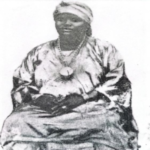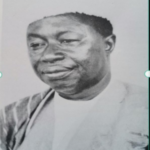JAMES TOPP NELSON YANKAH
James Topp Nelson Yankah (1889-1964), a pioneer trade-unionist, was an outstanding educational leader between the 1930s and the 1960s. Despite strong opposition from the 1930s onwards, he favored English rather than the Ghanaian languages as the medium of instruction in primary schools, in the sincere belief that this would be more beneficial to the children.
He was born 1889 and was educated in elementary schools, and at the Accra Government Teacher Training College. He studied privately to obtain the professional qualification of associate of the College of Preceptors in England. He eventually became the first principal of Wiawso Training College, 70 mi (112 km) southwest of Kumase, before retiring.
Yankah’s strong belief in the need for professional status for teachers led to his founding the Assisted School Teachers Union (later the Gold Coast Teachers’ Union) in 1931, to resist lay-offs and salary cuts during the Depression of the early 1930s.
His success in organizing the union paved the way for further recognition of teachers as a professional body, improvements in their conditions of service, and their participation in educational policy-making. His contemporary rivals, however, argued that his success was due to his cooperation with missionary education services, and to his closeness to the governmental Department of Education. Yankah’s point of disagreement with the rival union was that he believed that teachers should not register their organization as a trade union because their social responsibility to the country was more important than their monetary rewards. Because of his firm grasp of the educational problems of the country as a whole, he outshone his rivals, who thought of trade union activities as an end in themselves.
Yankah became a force to reckon with in deciding on the choice of a medium of instruction in primary schools. He stood firm in opposition to the Graduate Teachers’ Association, the Association of Training College Teachers, and the Presbyterian Educational Unit, all of whom upheld the majority report of the Barnard Education Committee of 1954, which recommended that African languages should be the medium of instruction in primary schools.
Somehow, however, Yankah’s minority report, which advocated the use of English as a medium of instruction, was adopted by the government and implemented in 1959. His main argument, with which most disagreed, was that the local languages were not sufficiently developed in terms of flexibility, vocabulary, and knowledge.
Furthermore, he was convinced that the adoption of English would help Ghanaian children to understand science subjects, and thereby more readily develop a scientific attitude of mind. Yankah appeared to have been led into this denigration of his own culture by his great friend, Mother Margaret Cope, of St. Hilda Priory, Whitby, England, who convinced him that “there is only one form of culture now, and not a Western and Eastern culture, or an African and a European culture.” His attitude to the study of African languages, however, led many people to have a poor opinion of him, seeing him as a man with an inferiority complex.
Even though his views on Ghanaian culture and the role of African languages in primary schools have not prevailed, Yankah is now seen as a rare educational leader, and a man of strong, and even radical, views, who advanced them boldly at a time when inaction and appeasement in matters affecting education were the order of the day. He died in 1964.
K. ASIEDU-AKROFI


